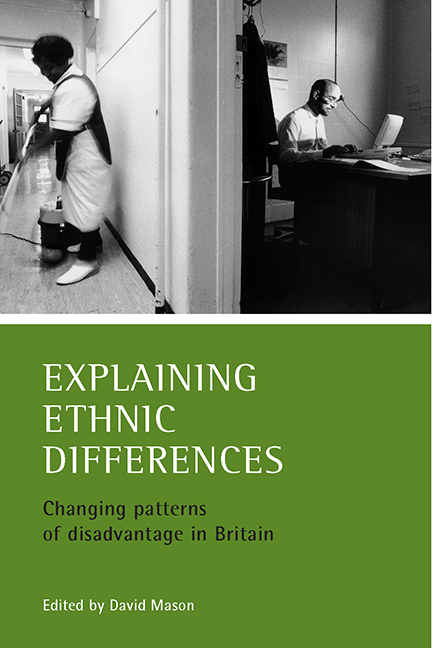Book contents
- Frontmatter
- Contents
- List of figures and tables
- Foreword
- Notes on contributors
- one Introduction
- two Changing ethnic disadvantage: an overview
- three The demographic characteristics of people from minority ethnic groups in Britain
- four Ethnic differentials in educational performance
- five Changing patterns of ethnic disadvantage in employment
- six Patterns of and explanations for ethnic inequalities in health
- seven Housing black and minority ethnic communities: diversity and constraint
- eight ‘All the women are white, all the blacks are men – but some of us are brave’: mapping the consequences of invisibility for black and minority ethnic women in Britain
- nine Police lore and community disorder: diversity in the criminal justice system
- References
- Index
nine - Police lore and community disorder: diversity in the criminal justice system
Published online by Cambridge University Press: 20 January 2022
- Frontmatter
- Contents
- List of figures and tables
- Foreword
- Notes on contributors
- one Introduction
- two Changing ethnic disadvantage: an overview
- three The demographic characteristics of people from minority ethnic groups in Britain
- four Ethnic differentials in educational performance
- five Changing patterns of ethnic disadvantage in employment
- six Patterns of and explanations for ethnic inequalities in health
- seven Housing black and minority ethnic communities: diversity and constraint
- eight ‘All the women are white, all the blacks are men – but some of us are brave’: mapping the consequences of invisibility for black and minority ethnic women in Britain
- nine Police lore and community disorder: diversity in the criminal justice system
- References
- Index
Summary
Introduction
This volume has so far traced patterns of ethnic disadvantage as they are experienced in a number of aspects of life in modern Britain. A number of key themes are evident. First, it is possible to identify both continuities and significant changes in patterns of advantage and disadvantage, within and between groups. Second, the key role of socioeconomic status, or class, has been revealed on a number of occasions. Third, despite the evidence of upward social mobility for members of at least some minority ethnic groups, persistent evidence remains of an ‘ethnic penalty’ mediated by discrimination and racism.
In this chapter, the focus changes somewhat to an aspect of the lives of Britain's minority ethnic population that relates not simply to material well-being in its various guises but to what is in some ways a more intangible question: the experience of a sense of full, substantive citizenship. Nowhere is such a sense more palpable than in relations with key state institutions, and few such institutions can be said to have had such a consistently significant impact than the criminal justice system as a whole, and the police in particular. This is not to say that socioeconomic status is irrelevant to experience of the criminal justice system. There is a long history of research demonstrating the significance of class for the patterning of recorded crime and for the organisation of policing. What will be argued in this chapter, however, is that ethnicity mediates experiences of the criminal justice system in specific ways, and that the police play a key role in shaping that mediation. A key mechanism, this chapter argues, is the process by which differential ethnic marking of groups takes place in and through the process of policing. It will also be argued that there are both continuities and changes in the way this process has developed over recent years. In particular, we shall see that the fact that the criminal justice system operates differentially on different racialised groups with different effects is not a new feature of the way that law and order is implemented in Britain. Indeed, the civic disturbances that marked a number of England's northern towns in mid-2001 were evidence of a continuing differential marking of populations. However, a novel feature of that marking process concerns the shift of target from African-Caribbean to Asian Muslim males.
- Type
- Chapter
- Information
- Explaining Ethnic DifferencesChanging Patterns of Disadvantage in Britain, pp. 139 - 152Publisher: Bristol University PressPrint publication year: 2003



